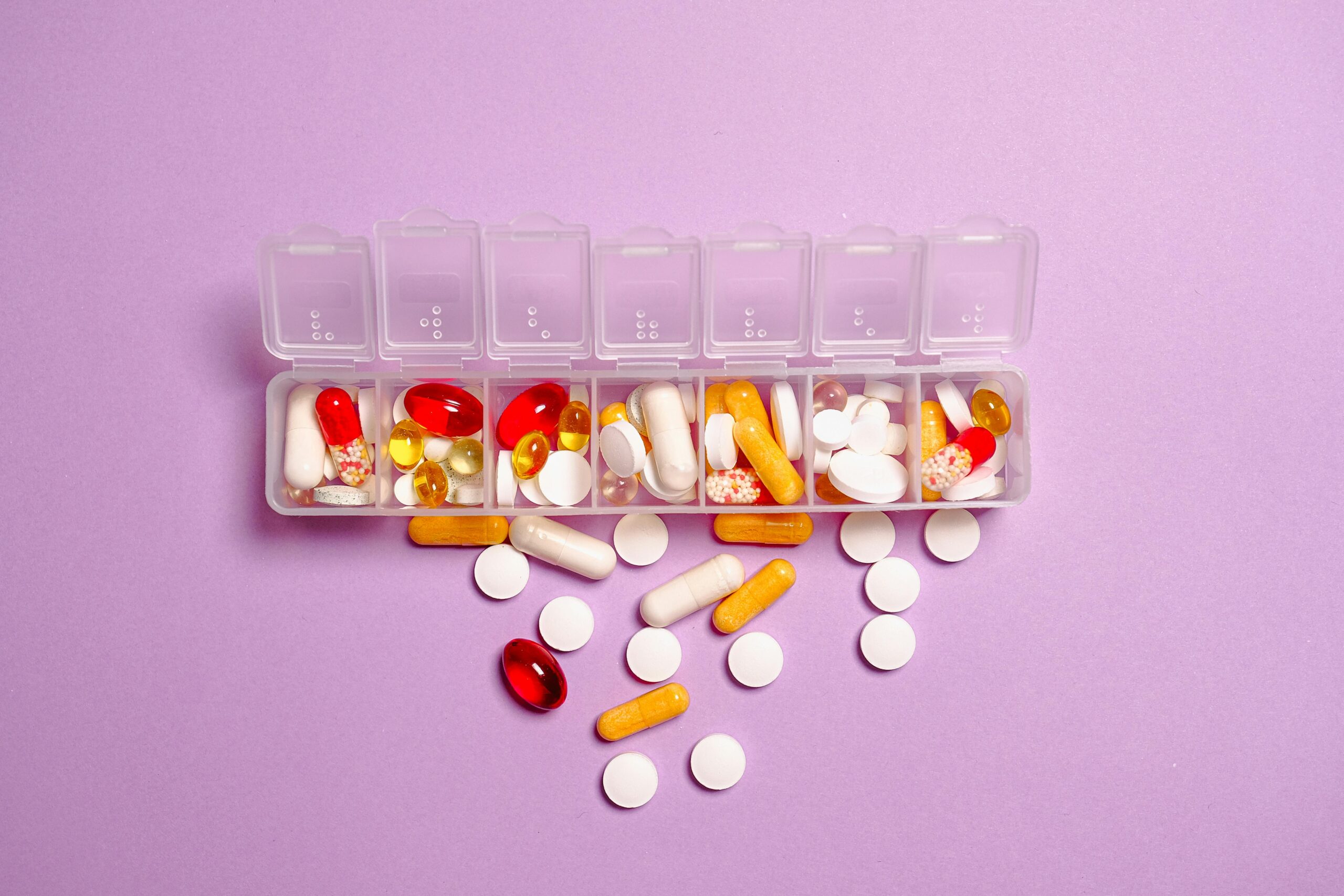
Selenium, a trace element vital to human health, is often overshadowed by more prominent nutrients. Yet, its significance cannot be overstated. As an essential micronutrient, selenium is crucial for the proper functioning of the body, contributing to antioxidant defenses, thyroid hormone metabolism, and immune system support. Despite its importance, the line between adequate intake and potential toxicity is fine, making understanding daily selenium requirements critical for optimizing health outcomes.
Dietary recommendations for selenium vary globally, reflecting differences in soil selenium content and dietary patterns. This variability underscores the importance of personalized nutrition and the need to strike a balance to harness selenium’s health benefits without risking adverse effects.
As we delve deeper into the role of selenium, it becomes clear that this micronutrient, though required in small amounts, is mighty in impacting our health and well-being.
What is Selenium Good For?
Selenium serves multiple physiological functions that underscore its importance in maintaining health and preventing disease. As a powerful antioxidant, selenium works with vitamin E and other antioxidants to protect cells from the damaging effects of free radicals, byproducts of metabolism that can contribute to chronic diseases and aging. This protective role is particularly crucial for the thyroid gland, where selenium-dependent enzymes aid in the conversion of thyroid hormones into their active forms, supporting metabolism and energy regulation.
Beyond its antioxidant and thyroid-supportive roles, selenium is integral to the immune system. It enhances immunity by promoting the proliferation of T cells and the production of antibodies, thus preparing the body to respond effectively to pathogens and infections. The broad-reaching benefits of selenium, from its contribution to antioxidant defenses to its support for thyroid function and immune health, highlight the nutrient’s essential role in maintaining overall health and well-being.
How Do I Know if I’m Getting Enough Selenium?
Assessing selenium levels in the body involves a combination of dietary intake assessments and laboratory tests. Blood selenium levels can provide a snapshot of selenium levels, but understanding dietary sources and intake patterns is crucial for a comprehensive assessment. Signs of selenium deficiency can be subtle and may include fatigue, muscle weakness, hair loss, and immune dysfunction. Conversely, excessive selenium intake, though rare, can lead to symptoms such as gastrointestinal upset, hair loss, and, in severe cases, more serious health issues.
Given the narrow margin between deficiency and excess, it’s crucial to consult healthcare professionals for personalized advice on selenium intake. They can recommend dietary adjustments or supplementation based on individual health needs, dietary patterns, and potential risk factors for deficiency or excess. This personalized approach ensures that you achieve optimal selenium status for health and well-being, avoiding the pitfalls of both deficiency and toxicity.
Recommended Selenium Dosage for Each Age Group
The dietary guidelines and recommended daily allowances (RDAs) for selenium vary by age, reflecting the differing needs throughout the stages of life.
Newborns to 6 Months
Maternal selenium intake during pregnancy and breastfeeding is paramount for newborns, as infants rely on maternal stores and breast milk for their selenium. The RDA for this group has not been established, but adequate intake is suggested based on the selenium content of breast milk.
Infants 7-12 Months
As solid foods are introduced, ensuring that these include selenium-rich foods becomes essential for meeting the slightly increased needs of this age group. The RDA is set at 20 micrograms (mcg) per day.
Children 4-8 Years
With growing bodies and developing immune systems, children in this age group require adequate selenium for growth and health maintenance. The RDA for this group is 30 mcg per day.
Children 9-13 Years
Pre-adolescence brings about increased nutritional needs, including selenium, to support rapid growth and hormonal changes. The RDA increases to 40 mcg per day.
Teens 14-18 Years
Adolescence requires additional selenium to support continued growth, hormonal balance, and reproductive health. The RDA for teenagers is 55 mcg per day.
Adults 19-50 Years
Adults need consistent selenium intake for general health maintenance, including immune function and fertility. The RDA remains at 55 mcg per day.
Adults 51-71 Years and Older
As you age, selenium’s antioxidant properties become increasingly crucial for combating oxidative stress and supporting cognitive function. The RDA for adults in this age group continues to be 55 mcg daily, but individual needs may vary based on health status and dietary intake.
Seniors Older than 71 Years
The risk of selenium deficiency increases with age, potentially impacting overall health and quality of life. Regular monitoring of selenium status and dietary adjustments or supplementation may be recommended to meet the RDA of 55 mcg per day.
These RDAs serve as general guidelines, and individual requirements may vary based on health status, lifestyle, and dietary restrictions. Consulting with healthcare professionals is crucial for personalized recommendations.
Can Selenium Interact with Other Medications?
Selenium supplements can interact with certain medications, affecting their absorption, metabolism, or efficacy. For example, selenium may enhance the blood-thinning effects of anticoagulant drugs, such as warfarin, increasing the risk of bleeding. It may also interact with chemotherapy drugs, potentially affecting their effectiveness or side effects profile.
Furthermore, medications used for cholesterol management and birth control pills can influence selenium levels in the body, either by increasing its excretion or altering its absorption. Given these potential interactions, it’s important for those taking prescription medications to consult healthcare professionals before adding selenium supplements to their regimen. This ensures that selenium supplementation supports health without unintended interactions with medications.
Incorporating selenium into one’s diet through natural food sources is generally safe and less likely to interact with medications. However, professional guidance is essential for those considering higher-dose supplements to navigate potential interactions and optimize health outcomes.
What Happens if I Don’t Take Enough Selenium?
Though relatively rare in well-nourished populations, Selenium deficiency can lead to significant health issues, underscoring the importance of adequate intake. Insufficient selenium levels in the body can weaken immune function, making it harder to fight off infections and potentially leading to a slower immune response. Moreover, selenium plays a critical role in thyroid function by helping convert thyroid hormones into their active forms. A deficiency can disrupt this process, leading to thyroid disorders, including hypothyroidism, characterized by symptoms such as fatigue, weight gain, and cold intolerance.
Another consequence of inadequate selenium intake is an increased susceptibility to oxidative stress and associated conditions. Selenium’s antioxidant properties help protect cells from damage caused by free radicals. Without enough selenium, the body’s antioxidant defense system can be compromised, potentially leading to cellular damage and an increased risk of chronic diseases such as heart disease and certain cancers.
To prevent selenium deficiency and its associated health complications, consuming a balanced diet that includes selenium-rich foods, such as Brazil nuts, seafood, meat, and whole grains, is crucial. If you cannot meet your selenium needs through diet alone, supplementation may be necessary under the guidance of a healthcare professional.
What are the Best Selenium Supplements?
When dietary intake falls short, selenium supplements can help fill the nutritional gap. However, with various forms of selenium supplements available, choosing the right one is crucial for optimal absorption and efficacy. The most common forms include selenium selenite, selenium chelate, and selenomethionine, with selenomethionine generally regarded as the most bioavailable form, meaning it’s more easily absorbed and utilized by the body.
Some of the best-sellers and expert-recommended selenium supplements available in NHC’s store include the high-quality options below:
- Pure Encapsulations Selenium: Pure Encapsulations offers a high-quality antioxidant supplement with 200mcg of selenomethionine selenium per capsule, designed to support antioxidant defenses and thyroid function.
- Codeage Liposomal Selenium: CodeAge’s Liposomal Selenium provides 200mcg per serving of selenium as L-Selenomethionine, utilizing a phospholipid complex for enhanced absorption and bioavailability.
- Dr. Mercola Zinc Plus Selenium: Dr. Mercola combines zinc with selenium in a bioavailable formula to support healthy cells, immune response, cognitive health, metabolism, bones, and vision, promoting overall well-being.
Bottom Line
Maintaining adequate selenium intake is crucial for optimal health, given its role in supporting antioxidant defenses, thyroid function, and immune response. While selenium deficiency is rare in well-nourished populations, ensuring a balanced intake through diet or supplementation is key to preventing potential health issues. Incorporating selenium-rich foods into your diet and, if necessary, choosing high-quality supplements can help meet your daily requirements.
Always consult with healthcare professionals before starting any new supplement regimen to ensure it aligns with your individual health needs and to avoid potential interactions with medications.
FAQ Section
What is the role of selenium in human health?
Selenium is a vital micronutrient that supports antioxidant defenses, aids in the metabolism of thyroid hormones and enhances immune function, playing a crucial role in maintaining overall health and well-being.
How much selenium do adults need daily?
Adults typically need 55 micrograms (mcg) of selenium daily, although specific needs may vary based on age, sex, and health status.
Does selenium intake vary by age group?
Yes, selenium intake recommendations vary by age group to reflect the different nutritional needs throughout the stages of life, from infancy to older adulthood.
Can selenium deficiency cause health problems?
Selenium deficiency can lead to health issues such as weakened immune function, thyroid disorders, and increased susceptibility to oxidative stress-related diseases.
How does selenium interact with other nutrients?
Selenium works synergistically with other nutrients, such as vitamin E, to enhance antioxidant protection. However, it can also interact with certain medications and nutrients, affecting absorption and efficacy, underscoring the importance of consulting healthcare professionals when considering selenium supplementation.
* These statements have not been evaluated by the Food and Drug Administration. The products mentioned are not intended to diagnose, treat, cure, or prevent any disease.





